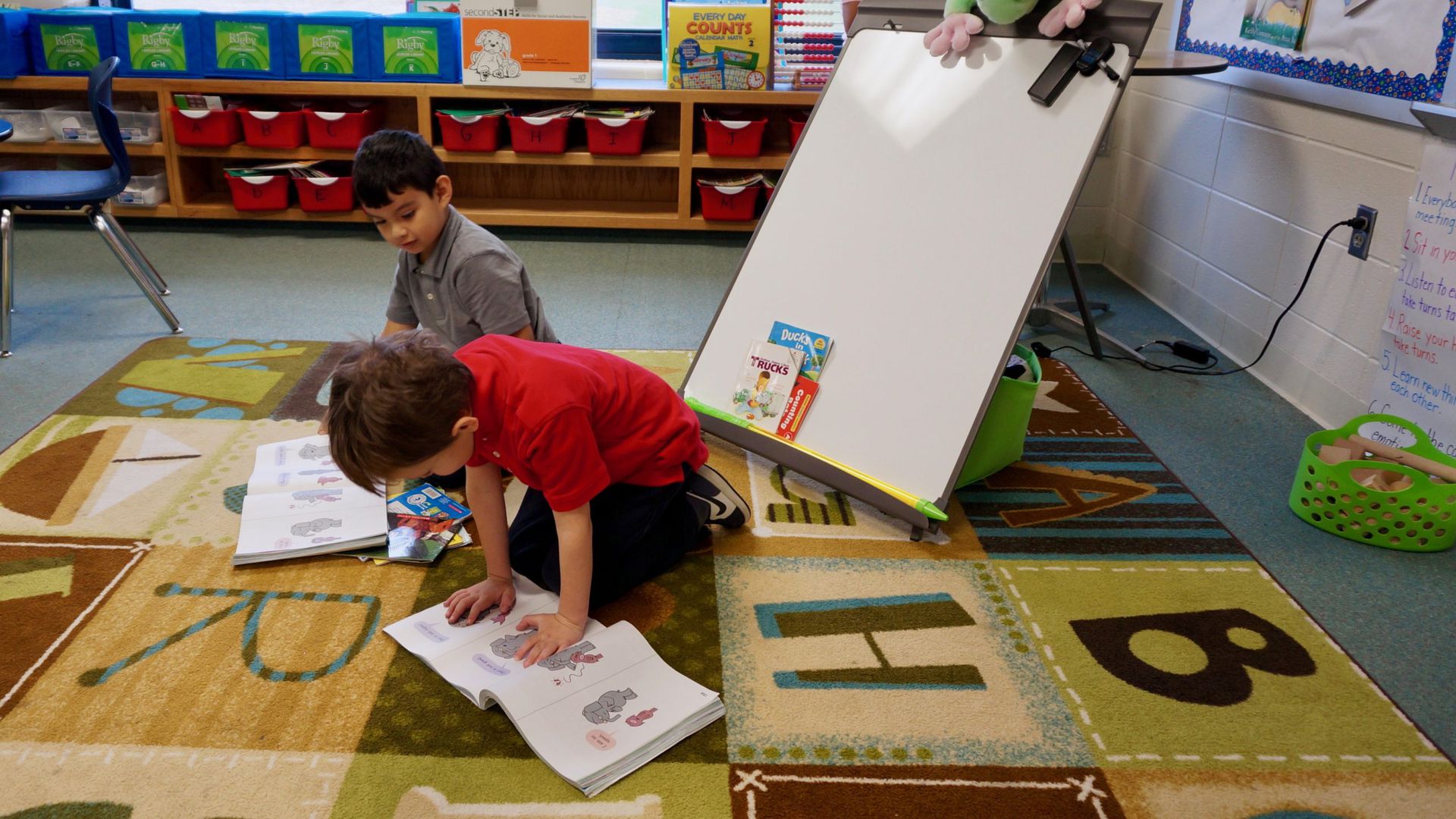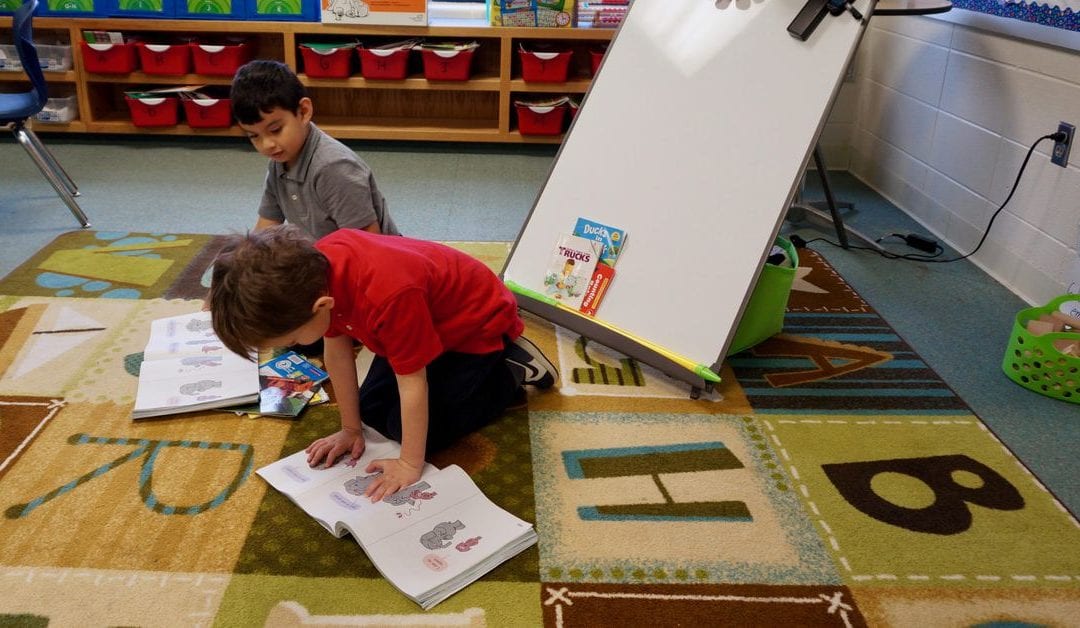
Colorado is one of six states selected for a yearlong effort focused on strengthening how the state’s teacher preparation programs train future educators to teach reading.
The project is the latest in a series of steps by state education officials meant to get more Colorado children reading at grade level after years of stagnant scores.
The Mississippi-based Barksdale Reading Institute is spearheading the effort — called The Path Forward — with an inaugural group of six states. Besides Colorado, they include Arizona, Massachusetts, Missouri, North Carolina, and Ohio.
Path Forward will allow state leaders to share strategies for embedding the science of reading into teacher training programs, holding those programs accountable for early literacy outcomes, and enlisting the help of philanthropic groups in such efforts. A coach will work with each state’s team to help them analyze data and decide what to pursue.
The science of reading refers to a large body of research on how children learn to read. Many teachers in Colorado and other states say they never learned about science-backed reading instruction in their teacher prep programs.
State education officials said they’re eager to hear from leaders in other states and believe Colorado has a lot of momentum behind its reading improvement efforts.
“We get to learn what other people are doing, and what’s working and what’s not working,” said Colleen O’Neil, associate commissioner of educator talent at the state education department.
There are a variety of ways to change how teacher prep programs deliver instruction on reading. These include more carefully enforcing state requirements — a tack Colorado has taken for the last two years in reauthorizing such programs. Other states, including Mississippi, require graduates of teacher prep programs to pass tests on reading instruction to earn their teaching licenses — an incentive for prep programs to ensure their students have the knowledge to pass the tests.
Barksdale, launched in 2000 with a $100 million gift from a tech executive, played a substantial role in Mississippi’s reading turnaround. Mississippi made headlines in 2019 when its fourth-graders made greater reading gains than almost anywhere else on the National Assessment of Education Progress test.
Kelly Butler, the organization’s executive director, said her group conducted in-depth studies of reading instruction practices in the state’s teacher prep programs and offered free voluntary training for prep program faculty who had never been trained on the science of reading.
Butler said the six states selected for the first round of Path Forward are all in different places when it comes to reading instruction reforms.
“The common theme was they had high-energy teams that seemed really eager to take this work on,” she said.
Johanna Anderson, the president and CEO of the North Carolina-based Belk Foundation, helped Butler develop the Path Forward concept and believes philanthropy can play an important role in helping shift the direction of teacher prep programs.
She said Belk, a small family foundation focused on early literacy and educator training, paid for a study examining how teacher preparation programs in North Carolina address reading instruction and coordinated high-profile meetings on the issue.
She said foundations can serve as “the connective tissue or glue that helps folks that are eyes-down, getting the work done, connect to the bigger picture.”
In Colorado, state leaders ranging from top lawmakers to Education Commissioner Katy Anthes have described the push to improve reading proficiency as a top priority.
Starting in 2018, Colorado began cracking down on how teacher preparation programs cover reading through the state’s reauthorization process. But given that universities only go through the process every five years or so, it will take at least until 2026 to touch all of the state’s prep programs. That means lots of newly minted teachers may not have the skills they need to teach young children to read.
Colorado has two dozen traditional 4-year teacher prep programs and another two dozen alternative prep programs, which are faster-track programs for people who already hold bachelor’s degrees. Traditional programs turn out far more teachers than alternative programs. Two-thirds of the state’s new public school teachers come from Colorado.
Of the five traditional prep programs that have undergone reauthorization since the state got tougher on reading, only two smaller programs have won full approval for all majors: Fort Lewis College and Adams State University. The other three — the University of Northern Colorado, Metro State University, and Regis University — have all been dinged because of shortcomings in reading instruction.
Colorado’s seven-member Path Forward team includes three education department leaders, a representative from the Colorado Department of Higher Education, a state lawmaker, a State Board of Education member, and a representative from Colorado Mountain College, which enrolls 426 students in its teacher prep program.
The first Path Forward meeting is Friday.
Colorado’s Path Forward team:
- Colleen O’Neil, associate commissioner of educator talent, Colorado Department of Education
- Mary Bivens, director of educator development, Colorado Department of Education
- Floyd Cobb, executive director of teaching and learning, Colorado Department of Education
- Brittany Lane, director of educator preparation, Colorado Department of Higher Education
- Cathy Kipp, state representative from Fort Collins, member of the House Education Committee
- Liz Qualman, director of teacher education, Colorado Mountain College
- To be determined, State Board of Education
This content was originally published here.

